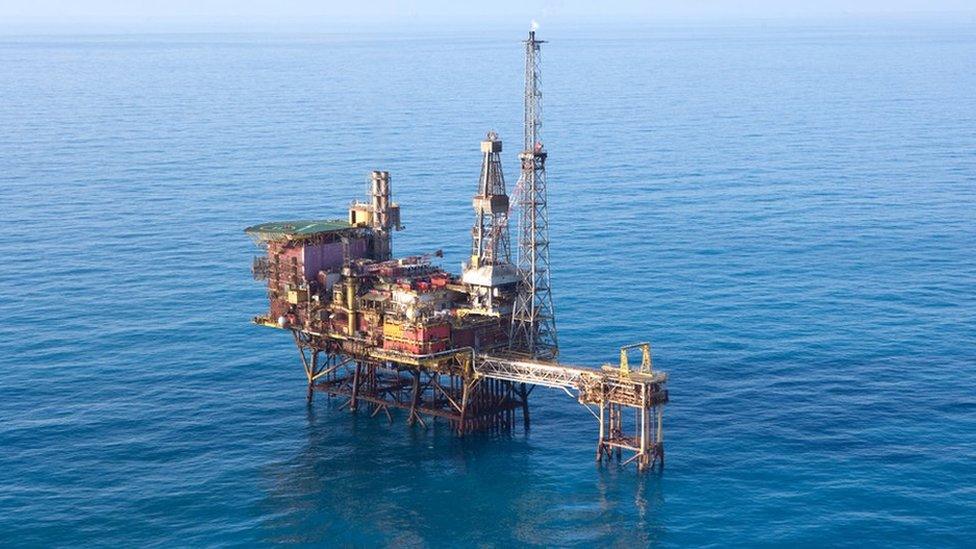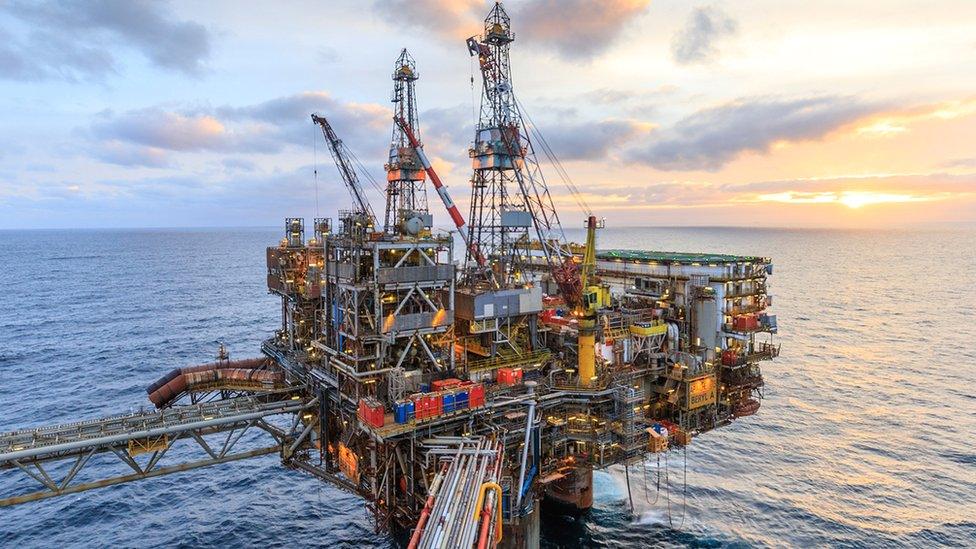Hundreds of North Sea workers start two-day strikes
- Published

The action involves installations such as Fulmar Alpha
Hundreds of North Sea workers have started two days of strike action in disputes over pay and working conditions.
Unite said about 146 maintenance workers had downed tools at Petrofac Repsol installations on Thursday.
Seventy-six of the union's members at Petrofac's BP installations have also walked out in a separate dispute, primarily about the working rotation.
Unite said the strikes could cause considerable disruption.
A total of 16 installations - 11 Repsol and five BP assets - are affected by the strikes, which will last until Friday.
Unite general secretary Sharon Graham said: "Offshore oil and gas companies are making eye-watering profits yet are playing Scrooge when it comes to the workers that create those profits.
"Instead of working to resolve this dispute, management are prolonging it. Their actions are those of a greedy and callous employer hell-bent on making their workers worse off while their shareholders bathe in the wealth created by my members."
The Repsol dispute relates to issues including pay, medicals, mileage and stand-in duties.

A total of 16 North Sea installations are affected by the strike action
Last month, Unite members staged a two-day strike at Repsol installations in a row over pay.
Unite industrial officer John Boland said: "Our members have faced a real-terms pay cut and an attack on their working terms over years as a result of them taking Petrofac's word that they would do the right thing.
"The workers involved in these disputes are resolute in their determination to continue with ongoing action until their claims are met.
"Petrofac cannot only afford to pay up and settle this dispute, they should do so now in order that workers on these installations can get on with the job."
Petrofac said it believed that its offer of an additional third week of paid leave for its team working on BP assets "fairly supports the request for additional recuperation time".
A spokeswoman added: "With the support of our client Repsol Sinopec, we have increased pay by 10% this year and committed to the 4% ESA (Energy Services Agreement) increase in January 2023. Stand-in duties have also been increased.
"We will continue to work closely with our teams and our clients to ensure there is no increased risk to safety during periods of industrial action."
Related topics
- Published16 November 2022

- Published20 October 2022
